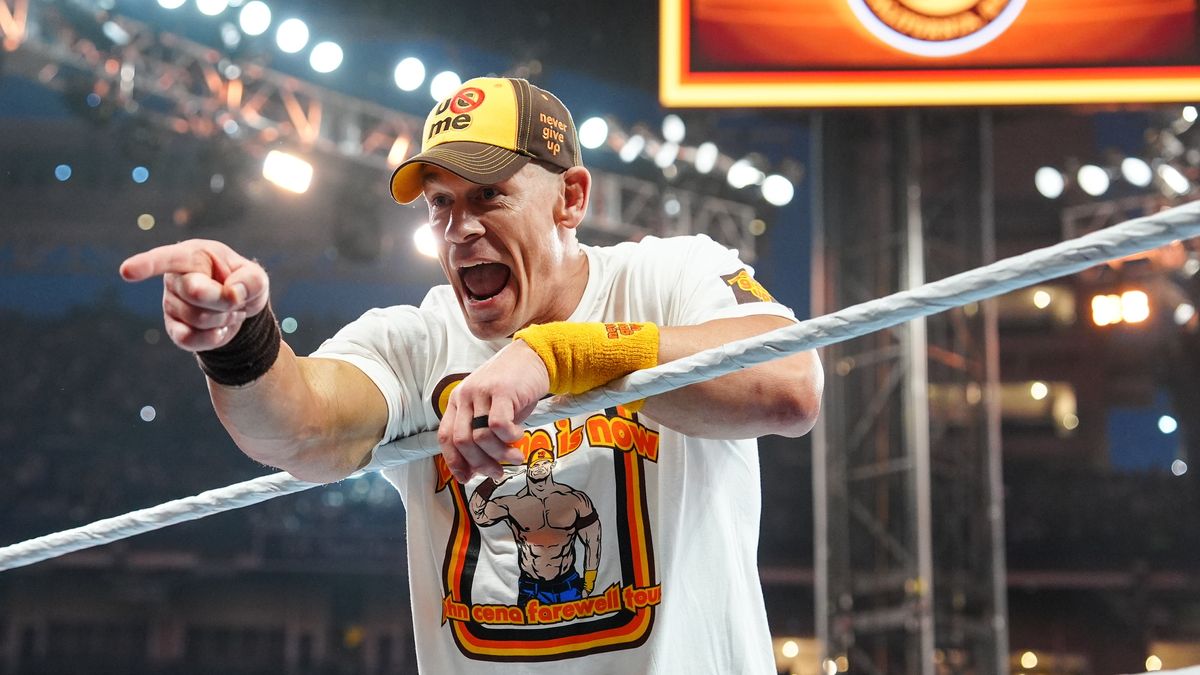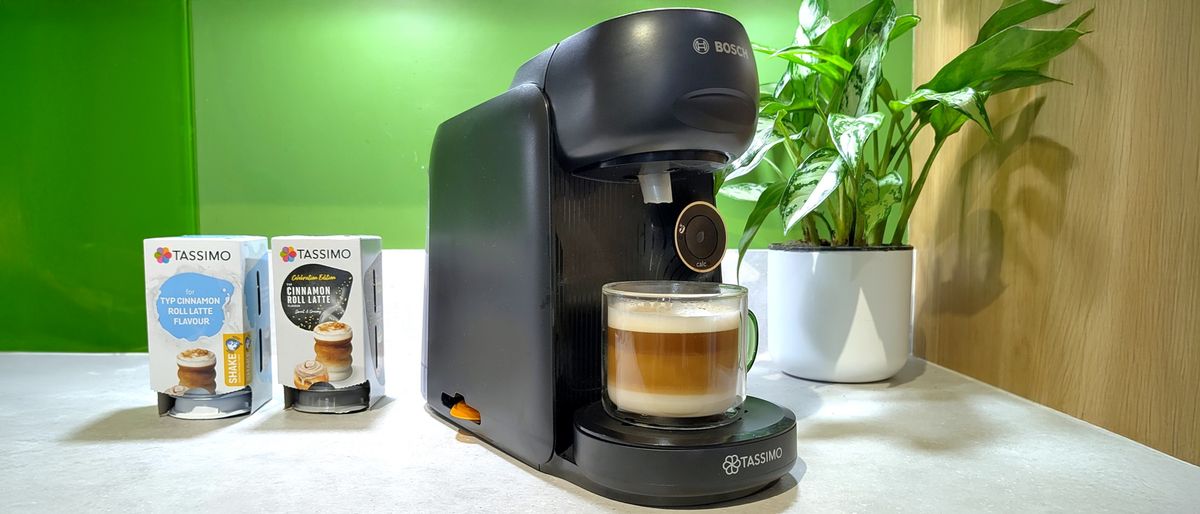Ben Collins made a big bet. A year ago, just a few months after he’d been named CEO of The Onion, he relaunched its print edition. Once a favorite on university campuses, The Onion hadn’t published a physical issue since 2013. Common wisdom said that readership, and advertising dollars, just weren’t there for newspapers. But Collins, a fan of the satirical paper since childhood, thought “that’s dumb.”
Readers celebrated The Onion’s relaunch and the ability to read all of its bitingly funny headlines on a single broadsheet. (An early headline from the relaunched edition: “I Was Honored to Die So the Print Edition of ‘The Onion’ Could Live,” written by “A. Tree.”)
Collins wouldn't give exact numbers on how many people are currently subscribed to the print edition but did say they should be enough to keep its writers’ room humming (a few weeks after we taped this episode, the Wall Street Journal reported that The Onion now boasts more than 53,000 paying subscribers). On this episode of Uncanny Valley, I spoke with Collins about his hopes for The Onion, the future of journalism, and his Balatro addiction.
This interview has been edited for length and clarity.
KATIE DRUMMOND: Do you have a recent favorite Onion headline? What's been good lately?
BEN COLLINS: I have so many. The Ghislaine Maxwell blood splatter one. Can I look it up for you?
Please do.
“Ghislaine Maxwell Can’t Help but Notice Interview Room Covered in Plastic Sheeting.”
The staff churns out like 15 a day that are great. Seriously. I sit there, and I still don't know how they do it. When I say they throw away eight or nine of the best sentences I would ever write every day, I mean that sincerely. They are just prolific and incredible comedy writers.
We’re going to start with a little warm-up. I'm going to ask you some quick questions, and you're going to answer them quickly. Are you ready?
Let's go.
What does the algorithm know about you?
Way too much. A lot of wrong stuff. I wish my net worth is what the algorithm said it was.
What is a piece of tech you wish existed but doesn't exist yet?
Have you ever seen the movie It Follows?
Absolutely not, but tell us about it.
It's a horror movie that's supposed to be set in no specific time frame, but there is a phone they have in there that's like a clamshell. It's an e-reader, and it's the pace of tech that I want it to be. Everyone look it up. It's great.
There's a disinformation reporter named Jane Lytvynenko who says that the sharks in the Atlantic Ocean should eat all the cables underneath the Atlantic Ocean that connect the internet. That's a piece of technology that I want. I want a shark that …
… eats the internet.
That turns it all off, yeah.
Maybe after this podcast is a big success. What app are you ashamed to love?
Balatro.
What is that?
Oh my God. It's a game made by a guy who didn't know he was inventing a thing that could make time go too fast. It's like poker with incentives, but I don't even like poker. It won Indie Game of the Year.
Last July I was in the middle of taking over The Onion and moving and all these things, and somebody told me to download Balatro.
I was about to get in the shower, and I downloaded Balatro and I started playing, and I looked up and it was two hours later and the shower was still on. So I turned the shower off, kept playing the game. My phone was in the other room. Two more hours go by and I go into the other room and my phone was wall-to-wall texts. I thought somebody in my family had died or something. Donald Trump had gotten shot in the ear.
No.
I'm assuming some people thought I had something to do with it.
They thought you shot him. You weren't responding.
Yeah. So Balatro is the answer.
Who or what is your hate follow?
I try not to do it anymore, ’cause it makes me too sad. It used to be that guy Nick Adams, but now he's the nominee to be US ambassador to Malaysia.
That seems to be how things are going in Trump's America. All your hate follows are now in very senior-level positions. All right, Ben, time for some real questions. You became CEO of The Onion in April 2024. How do you rate the job out of 10? What's the best part? What's been the hardest part of this year-plus of your life?
I'm going to be that guy who's like, “the staff deserves a 10 and I deserve a 4,” but that's kind of what it is. I just did obvious stuff, right? I came to a place that's known for its fake newspaper, and I brought back the fake newspaper. I just gave deadlines that were impossible to achieve, and they pulled it off. I'm very mid as a human being on all levels, but my midness allowed me to see what most people think The Onion is and should be.
We went in, and the website was just absolutely bombarded with gross dick-pill ads, and we just didn't want that anymore.
How much money were dick-pill ads bringing in for The Onion? Even if you can't share numbers, what amount of revenue did that account for?
About 70 percent of revenue.
No!
That's what private equity does—and, like, I get it. Seeing it from this side, there's a level of precarity involved with not having basically a slot machine operating in the background.
The dicks are about 70 percent of revenue, and they're probably like a couple million dollars a year maximum. But the entire page was that, and it detracted from the comedy. They weren't leaning into the things they did best. So we just turned that all off and were like: We're just not gonna make money for a month. We have this initial infusion of money, and we think we can survive until we get this paper moving.
Then there was this kismet where the DNC was happening in Chicago, so the entire political press and the entire world was focused on Chicago—even more so since there was just a brand-new nominee. To relaunch then, we had to figure out everything. You would call it building a stack, but really we had to invent a business. We had to figure out a way to print newspapers in 2024.
I was going to ask about the logistical complexities of restarting a newspaper in the year 2024.
A big part of it for us was that we were just so naive. We didn't know that there were middlemen that could accomplish this for us, so we just built it ourselves.
There was a place by O'Hare [airport] called Topweb that prints newspapers—Spanish-language dailies and those coupon books, basically.
They had just bought—at a huge discount from like Switzerland or something—this gigantic old-fashioned newspaper-making machine, which was big and the scale that we needed. So we got kind of lucky there. We also needed a new website, because the old website used a CMS called Kinja, which is part of the Gawker network.
Oh, I know all about Kinja.
It was a real harried, frenzied thing, but we launched a website and a newspaper between basically the last week of April and the first week of August.
That is not a normal timeline to overhaul not only the business model but all of the distribution mechanisms at the same time.
From the outside looking in, you seem like the kind of CEO whose employees would think “Goddamn, this guy rules.” So many people in newsrooms, whether fact-based or satire-based, look at what you’re doing with admiration. What makes you hard to work for? What are the things that drive your staff crazy about you?
The same things that make me good at this make me bad at it. I have that psychotic news brain where I'm just like, “We’ve got to get this done in two months or it's over.”
We're working on a project that will be out next month that is one of the more ambitious things that we’ve ever done, and I was like, “It’s gotta be done by the end of August.” They should throw stuff at me. They should pick up hammers and throw them at my head.
You relaunched the physical newspaper. You have a paid membership program. You overhauled your advertising strategy. You got video back up and running. What is your overarching strategy for The Onion as a business and as an editorial operation?
We are in this very unique position—and you guys [at WIRED] are, too; I think we're symbiotic in this sense—where the incentive structure for the bigger places is to capitulate and get in line, maintain access. Don't piss off the administration too much. We're the opposite, and it has helped us dramatically both as a business and as human beings.
We think a lot about how we can provide some truth-telling or catharsis right now. We can be silly when nobody else is. Since the election, things have changed for us. I didn't anticipate everybody buckling immediately. Did you anticipate all these places just immediately folding in half?
I didn't. I'm Canadian, so maybe I'm naive. When we started doing the reporting around DOGE and the administration, I remember looking around after a week and thinking, “Wait, did I miss an editor-in-chief memo? Am I—are we—doing something wrong? Why isn't anyone else covering this? This is really weird.”
The coverage picked up, but it certainly felt like a pretty lonely place to be for a minute, and a precarious place from a security standpoint that nobody else was jumping in full-throated, guns blazing.
At WIRED, we were like, “Let's go. This is the time.” What I've seen from The Onion is you've had this groundswell of support, right? And I think we saw the same thing. It has been good for business to do good journalism and tell the truth.
It's great for business and also you're inured to all these other pressures, right? Like advertisers do come to us to be a part of this. They might not scream it from the rooftops, but they do.
That's where the audience is—not with fascists with tiny mustaches. Where big billionaire money is, that's where they want everything culturally to align. But it's not where actual people are. People don't like this shit.
We got a window into this immediately, because the election happened and then eight days later the auction for Infowars happened.
Back us up here a little bit.
Infowars was for sale at auction because Alex Jones was successfully sued for a billion dollars by two sets of families—one in Texas, one Connecticut—that he had [defamed] for saying that the Sandy Hook [school shooting] was completely synthetic and didn't actually happen. The entirety of Infowars, including his supplements that he sells to people, were for sale, and we were going to put in a bid.
No one knew where the wind was blowing. Even in the week [after the election], you could see everyone was just like, I guess I better just batten down the hatches, board up the doors, and get afraid of fascism for four years.
We had to take a risk to do that. We won. The judge took it away from us because he was also scared of what was going on. He basically wiped away about like 18 months of court decisions. I mean, I would be spooked too.
You’ve got to remember, [deputy FBI director] Dan Bongino, [FBI director] Kash Patel—these people were on Infowars. That was a feeder system to the administration. So to be afraid of that is natural. But it also shows that putting your foot in the ground as a business and as a human being is important right now.
Absolutely. So just to be clear, you are still working on acquiring those supplements?
Yes. I mean, if we end up with the supplements, I still don't know what to do with them, but we are absolutely trying to. We have a whole plan for what to do with Infowars if and when we get it.
You know what? I interviewed Bryan Johnson, and he has a supplements business, so maybe he could take that off your hands.
Yeah. We're very similar people.
But back to Infowars, this is a murky universe that you are uniquely familiar with, right? You covered disinformation as a reporter, so you were very well steeped in how the internet became a cesspool of conspiracy and bad faith and artificial information, all of that nasty stuff. How has that shaped the way you think about The Onion’s role, maybe not as a purveyor of truth, because you don't exactly traffic in truth, but as a purveyor of something sort of good amidst all of that muck?
Anybody who covered this stuff saw the web degrade and the free flow of information degrade as billionaires and bad guys slowly took over the internet.
There were some real accelerant moments. [Elon Musk buying] Twitter was probably the biggest one of all.
The reason I was in such a rush to buy The Onion was that I wanted to protect this one thing. The Onion was my favorite thing growing up, period. It was my favorite outlet. It alerted me to really stupid jokes, nefarious behavior, but also, I would say, humanist politics.
You were a print Onion reader as mini-Ben?
As mini-Ben. I lived in the woods, and every time I got to go into Boston, I would come home with a stack of Onions.
It was your thing.
Yeah. It gave me a permission structure to think critically about the world. When I saw it was for sale, and I knew that it could end up in really bad hands, I went zero to 60. I did everything I could to save this thing. I don't know where it'd be right now if it was in somebody else's hands. It'd probably be weird AI headlines, and they'd probably fire all the staff and all this bullshit. I just didn't want that to be the case.
You really went through it with NBC, your previous employer, and I’m not going to ask you to speak ill of the dead, but I think essentially you said you were quitting journalism. You came back in a pretty big way.
This is a once-in-a-lifetime thing that I am just blessed to have been able to pull off.
What I saw happening in traditional journalism is not happening in this space, which is overt capitulation, trying not to piss off the very rich people who have deep-seated interests in people's advertising budgets and 401(k)s. I don't know what was going on at NBC. Nice folks work there, but there was clearly other pressure. Linda Yaccarino sold all of our ads there. I got suspended for being too mean to Elon Musk, and then two and a half months later she became the CEO of Twitter. It's not hard to connect dots here. I just found the whole thing gross, to be real with you. I had a year left in my contract there, and I knew roughly 10 months before that I was not coming back. So I just …
You went for it.
A very weird thing happened. I won this award, the Walter Cronkite award, which is so stupid.
No, it's a great award!
It's a great award, but it's very stupid they gave it to me.
I gave this whole speech about how you shouldn't capitulate. I said, halfway between a powerful person's lie and the truth is half the truth. I was talking about Elon and Trump. I knew going into it that was the end of my television career. The second I gave that speech, that was it. It was over with. I knew I would be hauled into an office. And that happened within three days.
You were hauled into an office over that?
Yeah. I was constantly in the principal's office at NBC.
The thing is we are allowed to say truer sentences at The Onion. My job is to clear a path for that. That's all I do. I try to be a weed whacker for all the stuff that could get in the way of a powerful person stopping you from saying what you want to say.
I want to ask you about your, shall we say, partner in crime? I don't know if you would describe him that way. He’s Jeff Lawson, the cofounder of Twilio. He’s not going to listen to this, so you can say whatever you want. A year in, how is Jeff shaping up as an owner?
Jeff's amazing.
Is Jeff involved? Is Jeff in the mix?
Not on an editorial level.
He has tons of C-suite experience. He ran a gigantic sprawling tech company.
He'll tell us frequently, focus is very important. If we're experimenting with building a grain silo or something, he's like, you guys run a fucking newspaper. What are you doing? But in terms of editorial direction, he's never touched it. It'd be hilarious to think about him jumping into that room and just being like, you're going to make fun of Nvidia now.
By today's standards, that makes him sound pretty remarkable. We've got Jeff Lawson over there with The Onion, we've got Jeff Bezos at The Washington Post, Marc Benioff at Time. For these very wealthy men who made their money in technology, why become media barons? Why take this on? And what's different in your assessment of Jeff's motives here compared to the other Jeff, who is literally dismantling one of the most storied institutions in our country?
It's a matter of scale. First of all, as you know, The Onion is 500 times bigger than The Washington Post. We have 500,000 employees across the world. So there's that.
He’s joking, by the way. It's a staff of what, 20 people?
Twenty-five. That's one part of it, obviously.
But there is something to just buying something and letting it be the great thing that it is. That is a statement in itself. Going into something and not ruining it is bravery. Not going in there and being like, “Now we're going to focus on woke cancel culture.” You're zagging by just going in there and letting it run. I'm not saying we shouldn't step on the gas a little bit. We had to do that to bring the paper back. We’re finding ways to look forward to the next big splash that we make.
But all the ideas come from the writers. It's not top-down. It's bottom-up. I think that's the big difference. What is going on at these other places is insane. It's a dereliction of duty and, candidly, devilish and horrific behavior—but you can't stop it. Rich people are gonna rich people. Whatcha gonna do?
Well, it sounds like you found a good rich person. So, way to go. Now what about money? Do you feel pressure to build a profitable business? How much money do you need to make?
Our pitch when we took this over was we just want to make a nice little business. The newspaper came up mostly because that's the better way to read The Onion—as a big tableau where things interact with each other. The point for us is to build a business that we like and we can build on top of. We decided to, in the last few weeks, archive all of our stuff. Eventually we'll probably make a little museum out of it or something like that. But we have 35 years of newspapers outside of this thing that are being archived right now.
Then we're going to make the office a little bit nicer, because everything's kind of sticky. We have 2011-era kitchen tables that have not been cleaned properly probably for about 15 years.
But we were trending toward profitability before we decided to buy new kitchen tables.
Before you got fed up with your sticky furniture.
The paper is a miracle. I don't want to give an exact number just yet for several reasons, but we can fill three Madison Square Gardens with the amount of people who subscribe to the newspaper.
I'm going to do that math later. [Madison Square Garden holds just under 20,000 people, depending on what kind of event is being held.]
It's in more than 50 different countries. In all 50 states. We ship them everywhere, and we're about to be back in newsstands.
We wanted to solidify the paper as something that could sustain the writers’ room. So if eventually I get decapitated for one of the horrific things that I say on Bluesky, the company's going to be OK. When we do these bigger stunts, like buy Infowars or put something in The New York Times, it doesn't affect the baseline of the business. This writers’ room will exist in perpetuity. It's an American institution. Let's keep it that way.
You are building something that I think gives a lot of people hope. It is a very, very, very difficult time to be running a media business. If you could sit in the CEO chair at another media company—let's say you're the CEO of Condé Nast, for example—what would you do? I know the scale is vastly different, but you look at these companies and you just think God, you’ve got to get it together. And I'm not saying Condé Nast needs to get it together. I love and cherish my employer …
They've done nothing wrong at any moment, obviously. It's not one-size-fits-all. And that's good. Everybody has their own thing that they provide to the world. Regardless of what the government thinks about it, regardless of whatever threats you may receive over it, and regardless of where the technology is trending, lean into that thing.
For us, it was like: People associate The Onion with a newspaper. We didn't make a newspaper. That's dumb. Let's make the newspaper people associate us with really good and see if it makes the money back. And it does. So that's cool. And also it associated us with hijinks and showing up in weird spots and messing with people. So let's carve out budget and time and space to do that. What do people think of us at our best? How do we carve out capital, but also time, to do those things?
For you guys, you're doing that, I think. I was really excited to talk to you, because I want to talk to you about WIRED.
Next time you interview me.
You guys saw this huge gaping hole in covering tech the way it was covered even eight months ago, right?
And the hole has gotten a lot bigger, I will tell you that.
And just saying like, look, we have this opportunity to take over this whole beat. For some reason, these other places have 20, 30 tech writers on staff, and they're sitting around writing about fucking those Labubu things—I don't know what they're called.
We actually have a story in the works on Labubu, but it’s a good story.
That's fine. You can do one of those …
… we're going to do one.
But the big story is ‘the techno fascists take over the United States,’ and they're just not covering it? There is opportunity here among independent places to say things other places won't say.
Previously they used to at least pantomime that they spoke truth to power and did all these things. Go and take up that mantle right now, because it's going to pay dividends when this shit is over in a couple years.
Do you worry about safety? Something that we talk about a lot is legal or other threats from the White House. You have a president who sued CBS, which settled. Colbert was canceled under what I would describe as suspect circumstances, to say the least. The administration is looking for media companies to fall in line. Satire is not immune from that threat. How do you think about The Onion’s safety in this moment, whether legal or otherwise?
Well, they're going to come after you eventually if they don't come after you right away. The more you stand up and really puff your chest out, generally the better off you are. This is true of all fascist regimes throughout history: They hate ridicule and they hate people who are unbothered. And to say that you're not scared is insane. Everyone's a little afraid. And that's fine. You're supposed to be. They're trying to make you afraid all day long.
I have 40-plus years left on this planet Earth. I don't want to live like that. I don't think any of us do. I think it's more about how do you want to wake up every day and tell your kids what you did in this time period.
I never thought it was an option to just be like, “All right, cool. I guess we'll just be worse at comedy now.” What the fuck are you talking about? That's not what we're going to do. We're going to stand up for what we believe and what we know is true, and we're going to do exactly what we did before. And I'm telling you right now, when you do that, people might give you a hundred bucks to get your newspaper, because they want that in their house. They want to tell their friends in private that actually, I'm not OK with this.
It's a good market opportunity, sure. But did it really go through your mind that you would do anything else? What's shocking to me, to be real with you, is that apparently I was working for a bunch of people at all these journalism places all this time where they had limits at which they would stop telling the truth. I just didn't know that that was a thing. I guess I got bad training at journalism school.
I'm not going to do that. This is not constitutionally part of who I am.
What can we expect from The Onion in six months, a year, two years? Where are you driving this thing? Give us a little preview.
Sure. We are at the one-year anniversary of the relaunch of the paper. So the paper's getting physically bigger.
Fatter? Or larger?
It’s getting fatter.
OK, good. We like a fat paper.
We have more to do. We're getting more into sports, entertainment. We're going to show up in weird places. That's all I can say about the next one. You will see it.
My goal is to make it so the indie places that are doing well around us have more space and freedom to get back into print or to organize around each other and be a little bit happier. But that is a really vague thing that I'm not going to allude to any further than that.
Before I let you go, we are going to play a very quick game. This is a game we came up with. We're very proud of ourselves. It's called Control, Alt, Delete. What piece of tech would you love to control? What piece would you alter? And what would you vanquish from the earth?
I really would like to control Infowars. We'll see what happens.
OK. Alter.
I want physical keyboards back on phones. And I realize people are doing that in a shitty way. But I used to write whole columns on those.
You want the clickety-clackety.
I want the clickety-clackety. I want that everywhere. I want them back in cars. I want them everywhere.
And what would you delete? What would you just vanquish?
The output of anybody writing anything in AI in any capacity. It's just so bad, and I'm sick of reading résumés and LinkedIn posts and all of this stuff. It sounds identical. I hate it so much. I don't think it's ever going to get over that hump. I understand AI is really good at making tables for Excel documents and maybe coding an app that will explode the FAA or something.
But like, I'm telling you right now, if I read another fucking sentence that tells me in extreme confidence something very wrong, I am going to blow my brains out.
Uncanny Valley Live: Get tickets to our first live show in San Francisco on September 9.

 3 months ago
14
3 months ago
14








 English (US) ·
English (US) ·